Can Anyone Become An Author? 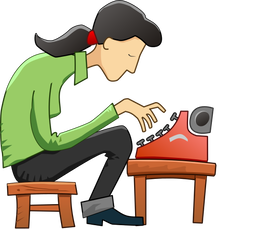 After “What do publishers actually do?” (see previous blogs for answers) the question we get asked most frequently is “Can anyone become an author?” That’s actually quite a big question to ask. It’s a bit like “Can anyone run 100 metres?” While the factual answer may be yes (with caveats about physical constraints), we could add that the vast majority of people will never run that distance faster than Usain Bolt; or even half as fast as Usain Bolt. The same applies to being an author. Anyone who can string words together to make an understandable sentence can, theoretically, write a novel. But it doesn’t mean they can write a novel that actually sells enough copies to make it worth the author’s time and effort writing it. For that you need talent. 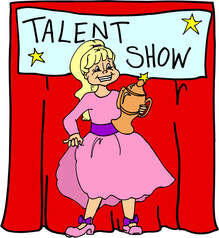 But the good news is that talent can be learned. Did you know that? The “natural talent” that most people are born with will only take them so far. Just because someone has learned to play the violin by the age of 3 doesn’t mean they will ever play the Albert Hall (or Carnegie Hall for my US readers). To be really good at something requires far more. It isn’t going to happen overnight, but if someone has the willpower and the motivation to learn, they can develop the skills necessary to write a book. It might take years of study and practice, but it is achievable. OK, it helps to have some basic skills. A wide vocabulary is an essential. Readers get bored of seeing the same words repeated page after page. They want variety. But a vocabulary is something that can be acquired. All you need to do is learn a new word every day and practice using it in context. That doesn’t sound so hard, does it? "the average person uses only around 20,000 words regularly" 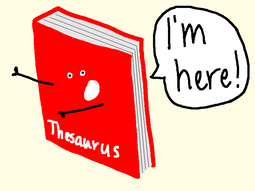 So why do we receive so many submissions that display a very narrow vocabulary? There are 171,146 words in the English language and more are added each year. If you’re an author of historical work there’s are another 47,000 words that are obsolete, but are still available for use. But the average person uses only around 20,000 words regularly. The average 8 year old has a vocabulary of about 10,000 words, so between 8 and adulthood we only learn to use another 10,000 words. Essentially this shows that some authors are in too much of a hurry. They want to tell their story without taking the time to learn the best words to use. But that is self-defeating, because a story that doesn’t grip the reader is one that will never be read. But it’s not just about vocabulary. Children that enter spelling bees have extensive vocabularies, but it doesn’t mean they will ever be good story tellers. It also helps to have a basic grasp of sentence construction and grammar. I'm not going to labour that point too much, because in our view it is better to split an infinitive than to write a clumsy sentence just so you don't have to split an infinitive. But at least learn enough to know that you are splitting an infinitive!  There are many courses available on creative writing. It isn’t our job to advise people which ones to take, because some of them charge fees and we don’t want to steer people into spending money with one organisation rather than another (at least, not without receiving a commission). But we can recommend courses that are free. This one is a good starting point for the would-be author. It’s called Start Writing Fiction and you can sign up for it from anywhere in the world. If you think you have nothing to learn from those sorts of courses, then ask yourself why you are reading this blog in the first place. But what really makes an author, after they have learnt the basics? Practice!  Practice, practice and more practice. And then, when you think you've finished practicing, practice some more. Earlier I mentioned Usain Bolt and his prowess on the running track, but he wasn’t born to greatness. He had some physical advantages, but no more so than many other children. What he did though, was train and train hard; ie, he practiced. No one ever became good at something, be it running, drawing or playing the cello, without practice and the same applies to authors. "And then, when you think you've finished practicing, practice some more." One of the problems with reading great authors is that we see their work at its best. We don’t see the years of practice they have put in to get to that level. The years of attending writing courses, retreats and workshops; the years of scribbling away in corners practicing their skills while everyone else was out having fun. Their book may be in the bookshops, but it didn’t arrive there fully formed at the first attempt. OK, maybe some did, for a lucky few authors, but for the vast majority it is the culmination of years of earlier practice; it may not have been called that, but that is what it was. There are very few authors who have the ability to write the first draft of a book and submit it to a publisher or agent and get it accepted. The authors that do succeed in getting their books published are those that have practiced the art of writing for a considerable period before attempting their first novel. 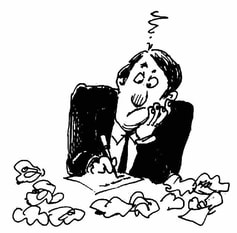 There are a number of ways that can be done, but we would suggest that you start writing just for the fun of it. Pick a subject and construct a story around it. There are plenty of writing prompts available on the internet to get you started. The next thing to try might be writing the same sentences or paragraphs several different ways – especially experimenting with new vocabulary – and seeing which work the best. You would be surprised how the impact of a paragraph can be changed, for better or worse, with just a few minor alterations. There’s no need to write more than a set number of words. You could start with 100, then 500, move up to 1,000 and then head for the dizzy heights of 10,000. If you can’t write a story that makes it to the 10,000 word mark, then it is unlikely that you will be able to write a full-length novel. But there is a market for short stories, so you could concentrate on that. Just as important as practicing is the quality of the practice itself. 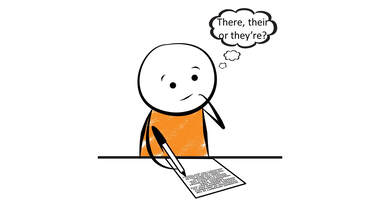 Practicing the stuff that the author finds easy isn’t going to improve their writing. Practicing the stuff that is hard is what brings about improvement. So, if the author hasn’t got an extensive vocabulary, practice allows them to extend it. If they aren’t great at developing believable characters, it is something that can be practiced. Great sports stars don’t spend hours a day practicing the things that come easy to them – they spend hours a day practicing the things that are hard for them. The same applies to any discipline: music, acting, business management, flying aeroplanes – and writing. Research into what creates successful people has demonstrated this time and time again. But practicing by itself doesn’t tell anyone anything. Authors need to know if what they are writing is any good: what is working and what isn’t. That way they can focus their practice on the things that don’t work and build on the things that do. For that they need a network of people who will provide them with honest feedback. "But practicing by itself doesn’t tell anyone anything" 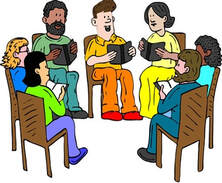 Which is where writers’ groups come in. Most communities have writers’ groups, but you can also join on-line groups. Which is where personality tends to enter the equation. Some people don’t like meeting strangers and some don’t like receiving adverse criticism. I’ll deal with the two things separately. On-line groups help because you don’t actually have to “meet” anyone. But if you can’t discuss writing and put your work forward for discussion, it is unlikely that you will ever get the feedback that tells you where you can improve. And if you don’t get that, you have no way of knowing if your work is good enough for publication. If you are a naturally shy person then it is something you are going to have to overcome if you ever want to develop as a writer. Some people try to work around this by asking their friends and relatives to read their work. Not a good idea. 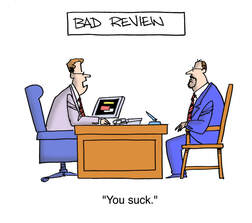 For an author to develop they need a “warts and all” criticism of their work; quality criticism. You are probably not going to get that from friends and family. They love you and they want to help, but their help is usually a hindrance because they will tell you what they think you want to hear, not what you need to hear. You learn the most from your mistakes, not from your successes, but if people won’t tell you about your mistakes, for fear of hurting your feelings, you learn nothing. In short, authors have to seek out the harshest critics. It’s the only way to get the feedback that is the most valuable. It hurts to be told “You suck!”, but it’s better to be told that by someone that you have asked to provide feedback than it is to be told by readers who have paid for your book! Because they certainly won’t pay to read another. Trust us on this. We get flooded with poor quality manuscripts and when we feedback on them, pointing out their flaws, we often get a reply back telling us how the author’s Mum or the author’s partner or the author’s mate down the pub really loved their story, so we must be wrong. If not that, we get very defensive responses trying to explain why the author did things their way. Fair enough – it’s your book, but don’t expect us to agree with you – or your Mum. If you are the sort of person who doesn’t like criticism (and there are many) then it is probable that you won’t be able to work with a publisher anyway. Because it is the publisher’s job to tell you if your book is any good or not, because they can only make money out of good books and every time they publish a book, they are laying their reputation on the line. The publisher will assign an editor to work with the author to get the book ready for publication and if the editor can’t provide critical feedback to the author, the book will never see the light of day. 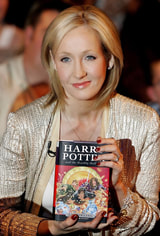 J K Rowling - allegedly rejected by 12 publishers. J K Rowling - allegedly rejected by 12 publishers. Having a publishing contract doesn’t guarantee an author will be published (did you know that?). Because the terms of the contract will stipulate that the publisher has the final say on whether or not the book is good enough for publication. Which requires the author to accept criticism and make changes if the editor suggests them. I use the verb “suggest” because “tell” sounds a bit blunt, but that’s what the editor is really doing. OK, publishers aren’t perfect and they may not get it right all the time. 12 publishers are rumoured to have turned down Harry Potter before Bloomsbury signed J K Rowling – so those 12 got it wrong. But all publishers know the difference between a stinker and a good book and, sadly, we see too many stinkers. And that’s because so many authors don’t realise that writing a decent story is actually much harder than it looks and it takes years of practice to succeed. Which is a shame because, in most cases, the author could have produced better work if only they had taken the time to learn how to do it properly and then practiced what they learnt. So, consider this: Your book isn’t selling and those few copies that do sell aren’t getting good reviews. Is it the fault of the reader, or the fault of the author? If you think it is the fault of the reader, then it is time to re-think your life choices, particularly the ones relating to being an author. Yes, anyone can become an author, but the successful ones take the time to learn how to be a good author, because no one is going to read a bad author. If you found this blog interesting and/or helpful and you want to make sure you don't miss the next edition, just sign up for our newsletter by clicking the button below.
1 Comment
|
AuthorThis blog is compiled and curated by the Selfishgenie publishing team. Archives
June 2025
|
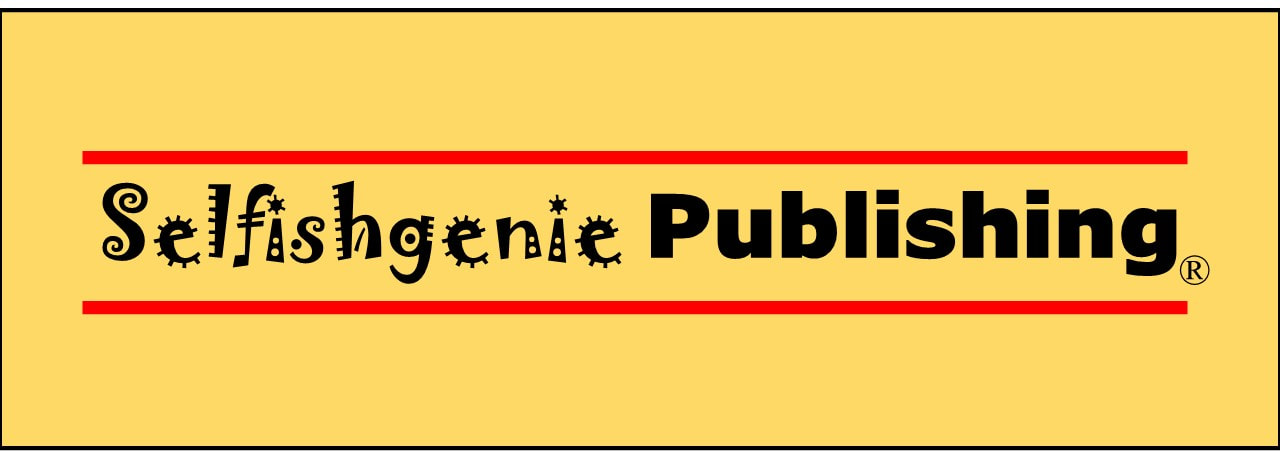
 RSS Feed
RSS Feed